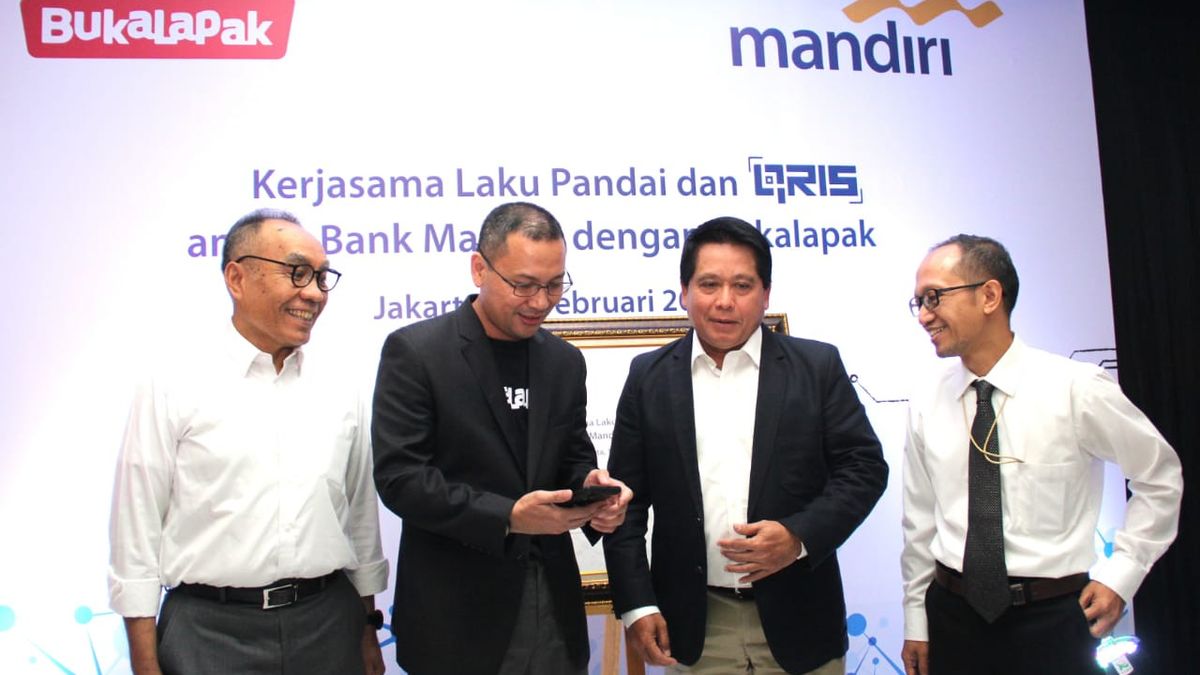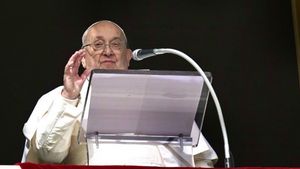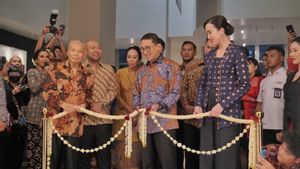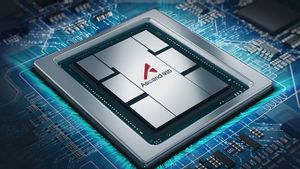JAKARTA - Continuing to improve public access to financial services, especially for those who have not been banked (unbanked) and have not been reached by banks (unbankable people), Bank Mandiri is collaborating with Bukalapak.
This collaboration will empower more than 1.5 million Bukalapak Partner Stalls to become Officeless Financial Service Agents for Financial Inclusion (Laku Pandai) and also be able to implement payment transactions using the QRIS (Quick Response Indonesian Standard) method.
This will make Mandiri the bank with the largest ATM network, as well as the largest QRIS provider in Indonesia.
This cooperation agreement was signed by the Director of Consumer & Retail Transaction of Bank Mandiri Hery Gunardi, Director of Institutional Relations of Bank Mandiri Donsuwan Simatupang and CEO of Bukalapak Rachmat Kaimuddin in Jakarta, Monday 10 February.
"This synergy is very strategic because it can not only expand the Laku Pandai agency at Bank Mandiri, but also provide strategic added value to Bukalapak partners in terms of service to customers as well as the potential to increase the number of customers. But of course we will carry out an internal screening process for the recommended partners, "said Donsuwan.
On the other hand, he continued, by becoming a Smart Mandiri Clearing Agent, Bukalapak partners will also be able to carry out some basic banking transactions such as cash deposits, cash withdrawals and transfers to Bank Mandiri and other banks.
"This provides greater added value for Bukalapak partners," he continued.
Currently, Donsuwan added, his party already has around 33,500 Laku Pandai Mandiri agents with a transaction volume of 13 million transactions valued at around IDR 16 trillion.
In line with what was conveyed by Bank Mandiri, Bukalapak CEO Rachmat Kaimuddin enthusiastically welcomed this collaboration. "The implementation of Smart Practice which we can use by Bukalapak Partners is called the Send Money Feature, which allows partner shop owners to help the local community send money safely, easily and comfortably," said Rachmat.
Rachmat also conveyed that one of the objectives that became the focus of this collaboration was how traditional warungs could become agents of change that helped improve the quality of life of the surrounding community because so far, stalls dominate 65-70 percent of Indonesian retail transactions.
Meanwhile, QRIS is also presented not only as an alternative payment method, QRIS will also make it easier for Bukalapak partners who become Laku Pandai agents because payment transactions will go directly to the accounts owned by Bukalapak Partners.
This is aimed at increasing efficiency and reducing partner needs in terms of cash deposits at ATMs or branches.
So, according to Hery Gunardi, along with the direction of Bank Indonesia which requires all QR transactions to be standardized according to QRIS, Bukalapak partners will be able to accept transactions from various digital financial service providers. Thus, merchants only need one QRIS for all payments.
"This is proof of our support for the Indonesian National Non-Cash Movement promoted by Bank Indonesia, to raise awareness and at the same time increase the use of non-cash among the public and business people," he said.
In addition, some of the advantages of non-cash transactions include safer transactions because they are not prone to theft, transactions can be tracked and cannot be used by just anyone, transactions are cleaner because they do not involve physical objects, and can reduce the circulation of counterfeit money.
The English, Chinese, Japanese, Arabic, and French versions are automatically generated by the AI. So there may still be inaccuracies in translating, please always see Indonesian as our main language. (system supported by DigitalSiber.id)








